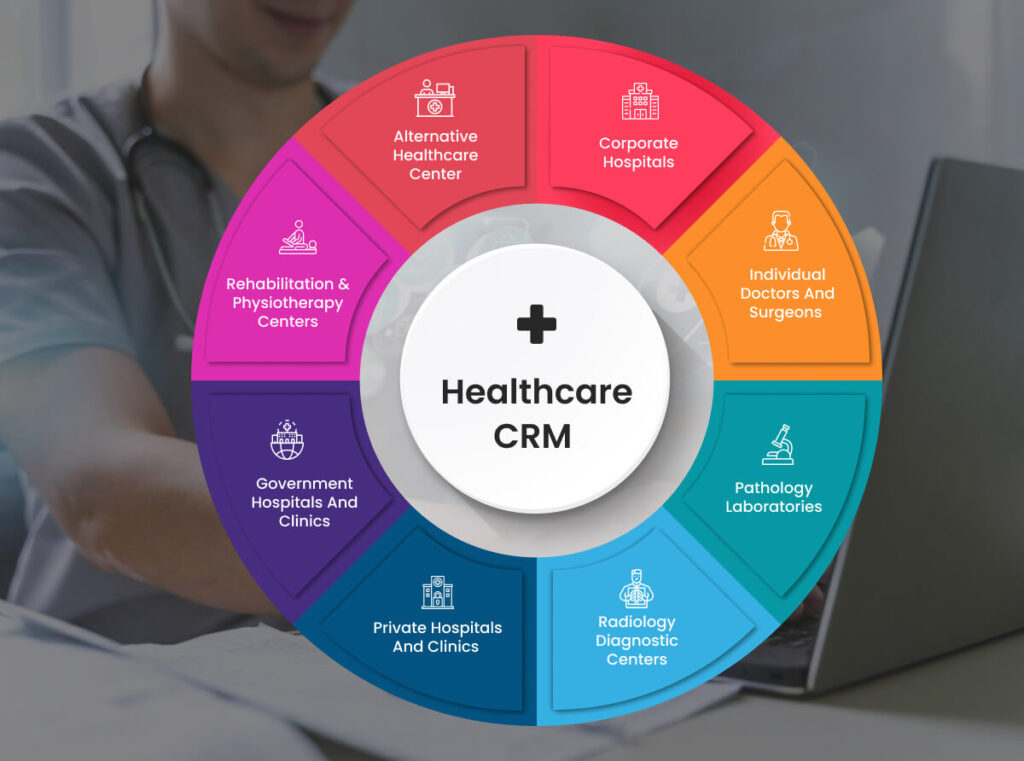In the rapidly evolving healthcare industry, the integration of Customer Relationship Management (CRM) systems has become increasingly vital. CRM systems, initially designed for managing customer interactions in the business sector, are now being tailored to meet the unique needs of healthcare providers. These systems offer a plethora of benefits that enhance patient care, streamline administrative processes, and improve overall healthcare outcomes.
Enhanced Patient Engagement
One of the primary benefits of using CRM in healthcare is enhanced patient engagement. Patient engagement is crucial for improving health outcomes and ensuring patient satisfaction. CRM systems provide healthcare providers with tools to manage and analyze patient interactions, preferences, and feedback. This data-driven approach enables providers to deliver personalized care, which fosters a stronger patient-provider relationship.
Personalized Communication
CRM systems facilitate personalized communication with patients. By leveraging data such as medical history, treatment plans, and patient preferences, healthcare providers can send targeted messages, reminders, and educational materials. This personalized approach not only improves patient compliance with treatment plans but also enhances the overall patient experience.
Improved Patient Education
Educating patients about their health conditions and treatment options is essential for effective healthcare delivery. CRM systems enable healthcare providers to deliver tailored educational content to patients. This targeted approach ensures that patients receive relevant information that empowers them to make informed decisions about their health.
Streamlined Administrative Processes
The administrative burden in healthcare can be overwhelming, leading to inefficiencies and errors. CRM systems streamline various administrative processes, reducing the workload on healthcare staff and minimizing the risk of errors.
Efficient Appointment Scheduling
Managing appointments can be a complex task, particularly in large healthcare facilities. CRM systems offer tools for efficient appointment scheduling, ensuring that patients are seen promptly and that healthcare providers’ time is utilized effectively. Automated reminders and confirmations reduce no-show rates and optimize appointment slots.
Simplified Billing and Insurance Management
Billing and insurance management are critical aspects of healthcare administration. CRM systems simplify these processes by automating billing procedures, tracking payments, and managing insurance claims. This automation reduces the likelihood of errors, speeds up payment processing, and improves financial management within healthcare facilities.
Enhanced Data Management and Analysis
Data management is a significant challenge in the healthcare industry. CRM systems provide robust data management and analysis capabilities, enabling healthcare providers to make data-driven decisions.
Comprehensive Patient Records
CRM systems centralize patient information, creating comprehensive patient records accessible to authorized healthcare providers. These records include medical history, treatment plans, test results, and more. Centralized records improve care coordination, reduce the risk of duplicate tests, and ensure that providers have access to the information they need to deliver high-quality care.
Data-Driven Decision Making
Healthcare providers can leverage CRM systems to analyze patient data and identify trends and patterns. This data-driven approach supports informed decision-making, helping providers to develop effective treatment plans, identify at-risk patients, and improve overall healthcare outcomes.
Improved Care Coordination
Effective care coordination is essential for delivering high-quality healthcare, particularly for patients with chronic conditions or complex medical needs. CRM systems enhance care coordination by facilitating communication and collaboration among healthcare providers.
Interdisciplinary Collaboration
CRM systems enable interdisciplinary collaboration by providing a platform for sharing patient information among different healthcare providers. This collaborative approach ensures that all providers involved in a patient’s care are on the same page, reducing the risk of miscommunication and improving the continuity of care.
Care Transition Management
Managing care transitions, such as from hospital to home or from one specialist to another, can be challenging. CRM systems streamline care transition management by tracking patient progress, coordinating follow-up appointments, and ensuring that all providers involved in the transition have the necessary information. This streamlined process reduces the likelihood of complications and readmissions.
Enhanced Patient Satisfaction and Retention
Patient satisfaction and retention are critical metrics for healthcare providers. CRM systems play a crucial role in enhancing these metrics by improving the overall patient experience.
Timely and Responsive Care
CRM systems enable healthcare providers to deliver timely and responsive care by streamlining administrative processes, improving communication, and ensuring that providers have access to comprehensive patient information. This efficient approach leads to higher patient satisfaction and better health outcomes.
Patient Feedback and Continuous Improvement
Collecting and analyzing patient feedback is essential for continuous improvement in healthcare. CRM systems facilitate the collection of patient feedback through surveys and other tools. Analyzing this feedback helps healthcare providers identify areas for improvement and implement changes that enhance the patient experience.
Compliance and Security
Compliance with healthcare regulations and ensuring the security of patient data are paramount concerns for healthcare providers. CRM systems are designed to meet these challenges effectively.
Regulatory Compliance
CRM systems are equipped with features that support compliance with healthcare regulations such as HIPAA (Health Insurance Portability and Accountability Act). These features include secure data storage, access controls, and audit trails, ensuring that healthcare providers meet regulatory requirements.
Data Security
Protecting patient data is a top priority in healthcare. CRM systems offer robust security measures, including encryption, user authentication, and regular security updates, to safeguard patient information from unauthorized access and breaches.
Conclusion
The integration of CRM systems in healthcare offers numerous benefits that enhance patient care, streamline administrative processes, and improve overall healthcare outcomes. From personalized communication and efficient appointment scheduling to enhanced data management and improved care coordination, CRM systems are transforming the healthcare landscape. As the healthcare industry continues to evolve, the adoption of CRM systems will play a critical role in delivering high-quality, patient-centered care.


